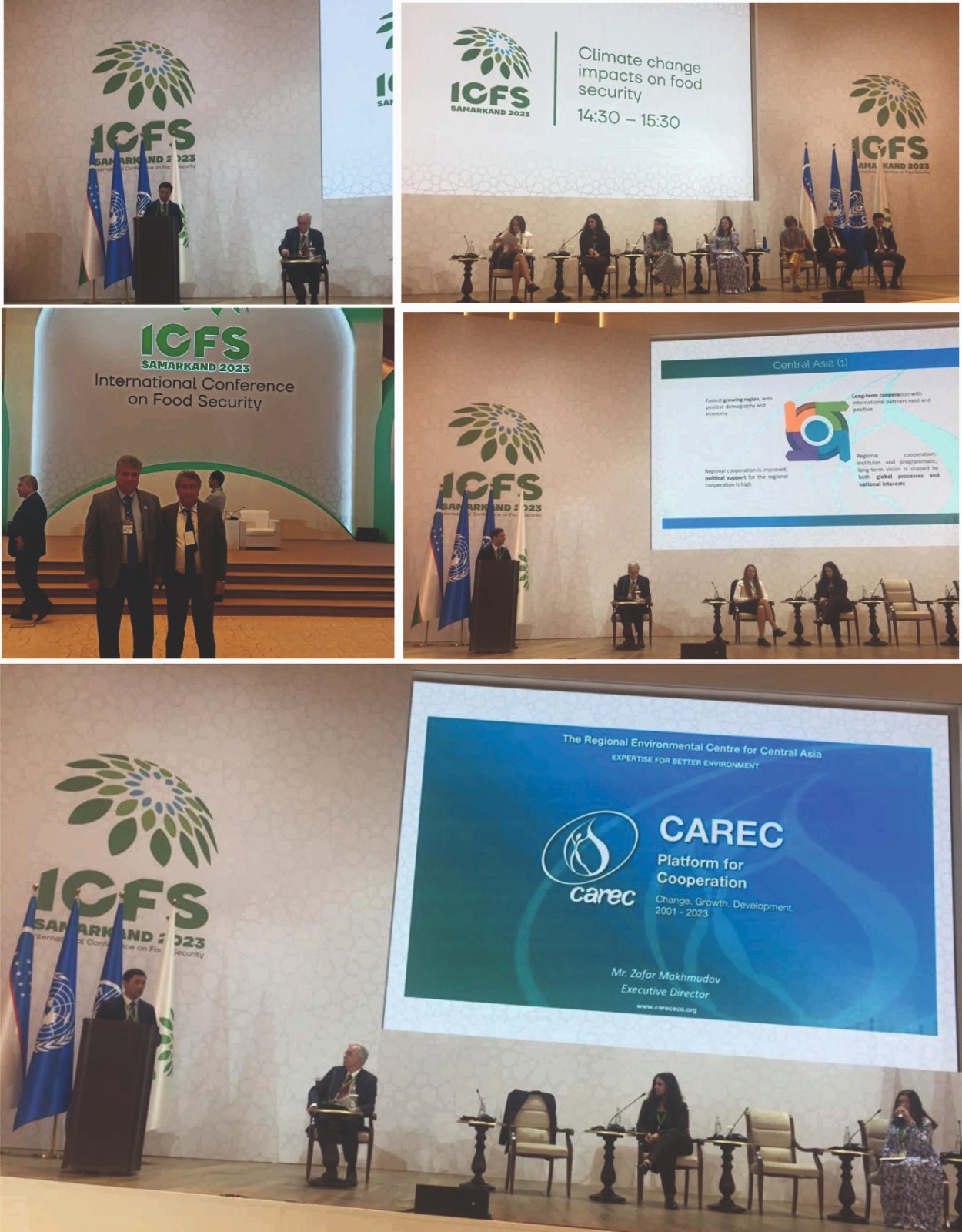“Climate-resilient practices in agriculture will ensure sustained rural development, food security and improve the quality of life for rural populations,” the Executive Director of the Regional Environmental Centre for Central Asia (CAREC) Zafar Makhmudov stated at the International Conference on Food Security in Samarkand, Uzbekistan.
The Conference started on September 7 and brought together over 2000 foreign specialists and experts from 32 countries. They discuss the wide range of issues on the current food security at the national, regional and global levels, including measures to achieve zero hunger by 2030. Among them are:
· Strengthening agri-food systems sustainability in landlocked countries
· Food security and access to healthy diets
· Climate change impacts on food security
· Food security. Challenges and solutions in the Shanghai Cooperation Organization (SCO)
· Strengthening gender equality in rural areas
· Water and food security
· Agri-food trade promotion for strengthening food security (with special focus on the logistical challenges faced by landlocked countries)
· Innovative agricultural development and digital agriculture
Zafar Makhmudov noted in his speech that Central Asian countries face such challenges as water scarcity, land degradation, biodiversity losses and ecosystem degradation, climate change and degradation of the environment in cities.
Adelphi and CAREC report “Rethinking Water in Central Asia” says that lack of water cooperation causes Central Asian countries losses worth around $4 billion.
Zafar Makhmudov believes the pillars of Central Asian sustainable development are cooperation in the environment and water by applying particular pragmatic measures.
CAREC, in cooperation with national and international partners and donors, implements a bunch of pilot projects to tackle food security problems. Their experience can be helpful in the implementation of climate-resilient agricultural practices by Central Asian countries at a national level.
Finally, Zafar Makhmudov stressed that CAREC has scientific and technical data and is experienced in building regional cooperation at the expert and interstate levels.
“Implementing climate-resilient practices requires joint efforts from the government, the public, entrepreneurs and international organizations. For its part, CAREC is ready at the expert and regional levels to support efforts aimed at reducing greenhouse gas emissions, efficient climate-resilient use of resources, improving the environment and ecosystems, which will ultimately contribute to the sustainable economic development of Central Asian countries,” CAREC Executive Director Zafar Makhmudov summed up.

